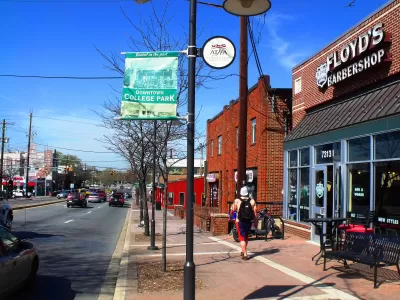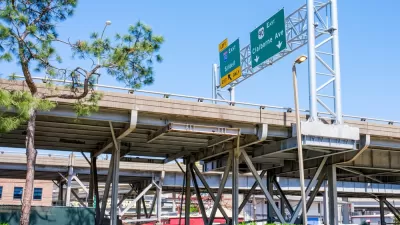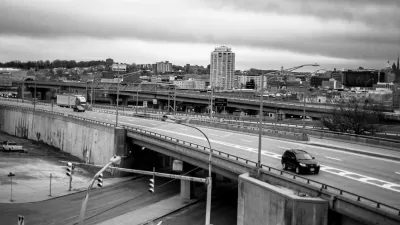The city of College Park will weigh recommendations from a newly formed Restorative Justice Steering Committee aimed at acknowledging and mitigating the damage to Black communities caused by urban renewal policies.

As reported by Diane Bernard, next week, College Park, Maryland's Restorative Justice Steering Committee will give the city a list of recommendations for a restorative justice program aimed at uncovering the stories of residents harmed by urban renewal policies and finding ways to compensate them.
While the specific form the reparations will take is still unclear, writes Bernard,
Potential reparations include neighborhood stabilization programs, which are used to assist communities with high foreclosure rates and provide funds to low- and middle-income households, and formal preservation of the community’s history through a cultural center and public projects. Compensation could also take the form of low-income housing and other kinds of financial support, which Wojahn said will unfold as the commission gets underway.
Like other Black communities around the country, Lakeland experienced the negative impacts of urban renewal as officials branded the area 'blighted' and forced residents out in the name of redevelopment. The city's reparations program seeks to acknowledge and address some of the damage done by these policies by providing resources and support to the households affected and creating programs aimed at promoting equity.
Other cities such as Evanston, Illinois, Asheville, North Carolina, and St. Paul, Minnesota have voted to create programs that fund housing assistance for families affected by redlining and other discriminatory housing policies.
FULL STORY: A university town explores reparations for a Black community uprooted by urban renewal

Maui's Vacation Rental Debate Turns Ugly
Verbal attacks, misinformation campaigns and fistfights plague a high-stakes debate to convert thousands of vacation rentals into long-term housing.

Planetizen Federal Action Tracker
A weekly monitor of how Trump’s orders and actions are impacting planners and planning in America.

In Urban Planning, AI Prompting Could be the New Design Thinking
Creativity has long been key to great urban design. What if we see AI as our new creative partner?

How Trump's HUD Budget Proposal Would Harm Homelessness Response
Experts say the change to the HUD budget would make it more difficult to identify people who are homeless and connect them with services, and to prevent homelessness.

The Vast Potential of the Right-of-Way
One writer argues that the space between two building faces is the most important element of the built environment.

Florida Seniors Face Rising Homelessness Risk
High housing costs are pushing more seniors, many of them on a fixed income, into homelessness.
Urban Design for Planners 1: Software Tools
This six-course series explores essential urban design concepts using open source software and equips planners with the tools they need to participate fully in the urban design process.
Planning for Universal Design
Learn the tools for implementing Universal Design in planning regulations.
Gallatin County Department of Planning & Community Development
Heyer Gruel & Associates PA
JM Goldson LLC
City of Camden Redevelopment Agency
City of Astoria
Transportation Research & Education Center (TREC) at Portland State University
Jefferson Parish Government
Camden Redevelopment Agency
City of Claremont





























